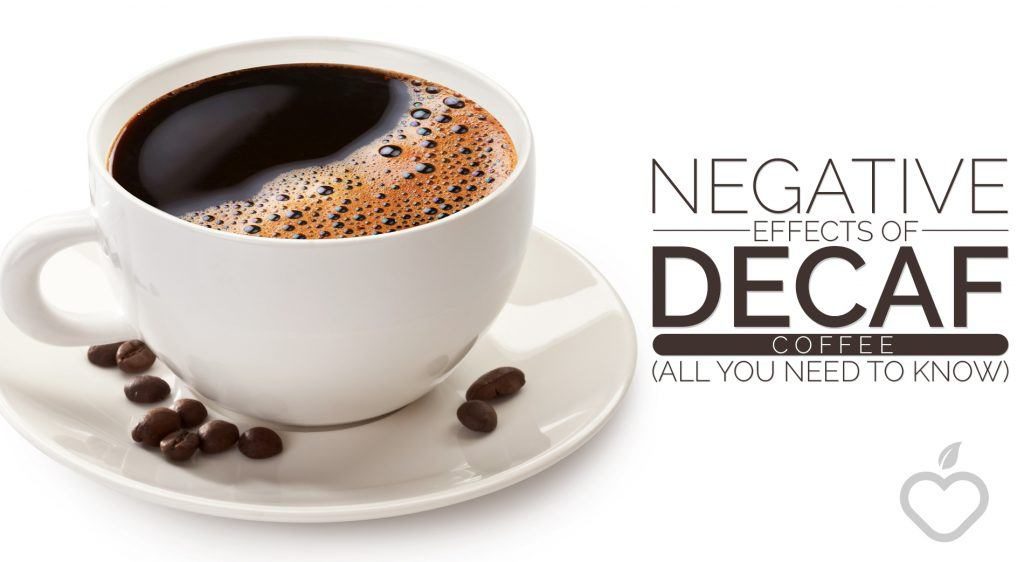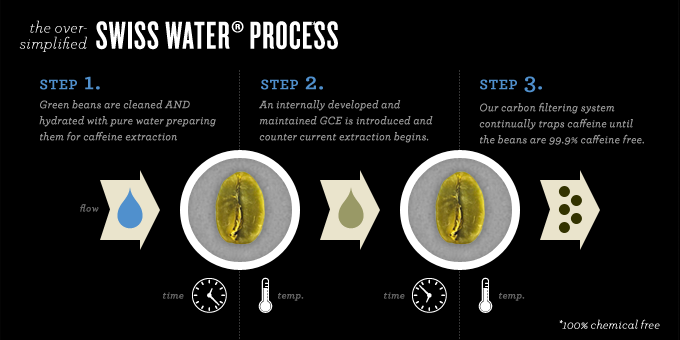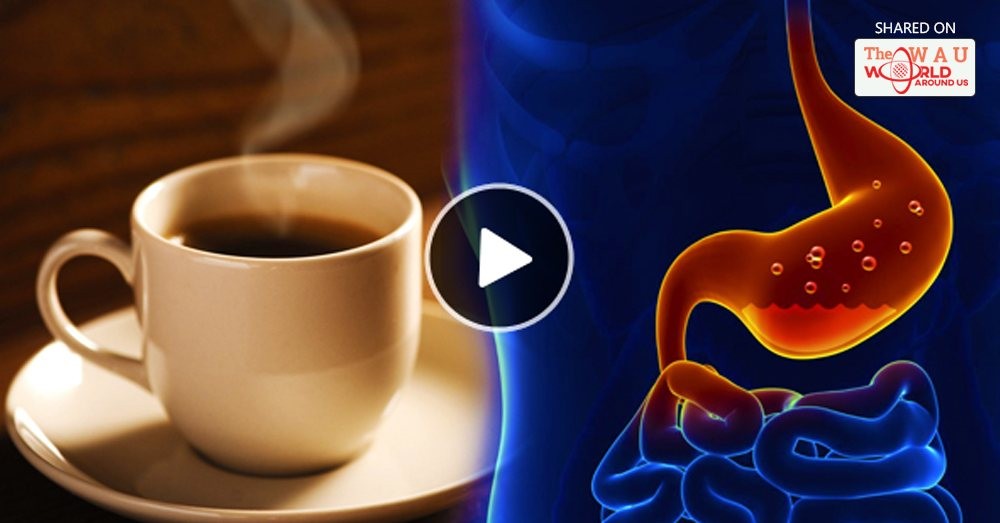The Decaf Coffee: Is Decaffeinated Coffee Bad for You?
Decaf Coffee: Is It Bad for Your health?
So you are a coffee lover, and you have all the gadgets and gizmos to make that perfect cup.
You know all the different coffees types available and your idea of a perfect Sunday morning is to relax with your favorite newspaper and a giant mug of a classic Columbian brew.
Decaf Coffee Benefits vs. Decaf Coffee Side Effects
So, what happens when for health reasons you are told to cut down on the coffee?

There are so many reasons these days why you might need to cut down on your caffeine intake, perhaps you are pregnant, or suffering from a heart condition that makes excessive caffeine consumption unwise.
As a coffee connoisseur, the idea of drinking decaf leaves you cold, but when it is a choice between your health and your coffee you probably don’t have much choice.
To make your transition easier, there are few things to consider before you stock up on decaf beans.
Be prepared to spend a little extra on high-quality decaf coffee brands to get a decent taste.
Health Benefits of Decaf Coffee
Even though Decaf Coffee has been demonized in the past, the recent research reveals that coffee is mostly good for your health.
Numerous health benefits are linked with drinking Decaf Coffee and they are mainly attributed to its high antioxidant content and other health benefiting active substances.
Even so, the specific health effects of drinking decaf coffee are still hard to determine.
The main reason for this is that most studies assess coffee intake without distinguishing between regular and decaf coffee, and some don’t even include decaf coffee.
And, the most important factor is that all of these studies are observational.
There is no way to prove that coffee caused the benefits, and the benefits are linked only to drinking coffee.
Decaf Coffee Meaning
According to Wikipedia Decaffeination is the removal of caffeine from coffee beans, cocoa, tea leaves, and other caffeine-containing materials.
While soft drinks which do not use caffeine as an ingredient are sometimes described as “decaffeinated”, they are better termed “non-caffeinated” because decaffeinated implies that there was caffeine present at one point in time.
Decaffeinated drinks contain typically 1–2% of the original caffeine content, and sometimes as much as 20%.
Decaffeinated products are commonly termed Decaf.
How Much Caffeine is in Decaf Coffee?
Decaf coffee is not completely caffeine free.
It actually contains varying amounts of caffeine, usually about 3 mg per cup.
One study found that each cup (6 oz or 180 ml) of decaf contained 0–7 mg of caffeine.
On the other hand, an average cup of regular coffee contains about 70–140 mg of caffeine, depending on the coffee type, preparation method and cup size.
So, even if decaf is not completely caffeine free, the amount of caffeine is usually very small.
Bottom Line: Decaf coffee is not caffeine free, as each cup contains about 0–7 mg. However, this is much less than the amount found in regular coffee.
Decaf Coffee is Still Loaded with Antioxidants and Contains Nutrients
Coffee is not the devil it has been made out to be.
It is actually the single biggest source of antioxidants in the Western diet.
Decaf usually contains similar amounts of antioxidants as regular coffee, although they may be up to 15% lower.
This difference is most likely caused by a small loss of antioxidants during the decaffeination process.
The main antioxidants in regular and decaf coffees are hydrocinnamic acids and polyphenols.
Antioxidants are very effective at neutralizing reactive compounds called free radicals.
This reduces oxidative damage and may help prevent diseases like heart disease, cancer, and type 2 diabetes.
In addition to the antioxidants, decaf also contains minor amounts of some nutrients.
One cup of brewed decaf coffee provides 2.4% of the recommended daily intake of magnesium, 4.8% of potassium and 2.5% of niacin, or vitamin B3.
This may not seem like a lot of nutrients, but the amounts add up quickly if you drink 2-3 (or more) cups of coffee per day.
Bottom Line:
- Decaf coffee contains similar amounts of antioxidants as regular coffee.
- These include mainly chlorogenic acid and other polyphenols.
- Decaf coffee also contains small amounts of several nutrients.
Decaffeination processes for coffee
In the case of coffee, various methods can be used. The process is performed on unroasted (green) beans and starts with steaming of the beans.
Coffee beans are rinsed with a solvent that extracts the caffeine while leaving other constituents largely unaffected.
The process is repeated from 8 to 12 times until the caffeine content meets the required standard (97% of the caffeine removed according to the US standard, or 99.9% caffeine-free by mass per the EU standard).
How Do You Decaffeinate Coffee?
There are various processes used to remove caffeine from coffee beans, or decaffeination, and the most economical uses chemicals to accomplish this.
Although the chemicals are washed away, small traces can remain that impact the taste of the resulting brew.
Some of the good coffee flavors can also be washed away with the caffeine.
Some more expensive decaf beans go through the Swiss method, where the beans are heated with water and then passed through activated charcoal, which bonds with the caffeine, leaving the beans with reduced caffeine but the majority of their original taste.
Swiss Water Method uses solely water and osmosis to decaffeinate beans. The use of water as the solvent to decaffeinate coffee was originally pioneered in Switzerland in 1933 and developed as a commercially viable method of decaffeination by Coffex S.A. in 1980.
Another, more recent addition to these processes is known as Hevla.
Coffees beans are steamed at high pressure and the caffeine removed, without any real impact on the flavor.
The use of this process is becoming more widespread but is unlikely to be used on the standard decaf for sale in your local supermarket.
As well as checking the manufacturing process when buying various brands of decaf coffee, you should also have a careful look at the caffeine content.

Pros and Cons of Decaf Coffee
You may think you have been clever enough to find a great decaf that tastes just like regular coffee, for a reasonable price.
You may, in fact, find that the caffeine content is only slightly reduced, hence the taste, and you can probably do yourself almost as much damage with this as with a regular brew.
Also, beware of drinking decaf coffee when you are out and about.
Because the same machines are used to make decaf as regular coffee, you might unintentionally be getting a large dose of caffeine anyway.
If you really can’t stomach changing to decaf, you could just reduce the amount of coffee that you drink and really savor those occasional cups.

You could also switch to a darker roast such as an Italian roast, popular for espresso making, which is naturally low in caffeine because most of it has burnt off during the roasting process.
So don’t despair when your doctor gives you the bad news.
Just because you have to cut down on caffeine, this does not mean that you have to give up your coffee altogether.
Aging and Neurodegenerative Diseases
Seems like both regular and decaf coffees have positive effects on the age-related mental decline.
Human cell studies also show that decaf coffee may protect neurons in the brain.
This could help prevent the development of neurodegenerative diseases like Alzheimer’s and Parkinson’s.
One study suggests that this may be due to the chlorogenic acid in coffee, rather than caffeine.
However, caffeine itself has also been linked to a reduced risk of dementia and neurodegenerative diseases.
Studies show that people who drink regular coffee have a lower risk of Alzheimer’s and Parkinson’s, but more studies are needed on decaf specifically.
Bottom Line: Decaf coffee may protect against age-related mental decline. It may also reduce the risk of diseases like Alzheimer’s and Parkinson’s.





